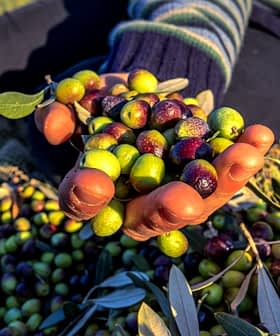5 Easy Ways to Know Your Olive Oil is a Ripoff
So you splurged for extra virgin olive oil, but did you get what you paid for? Here are five sure signs you got ripped.
With hundreds of articles in these pages about olive oil quality, some readers might feel overwhelmed and could use a few quick tips to tell a real extra virgin olive oil from one pretending to be. Not everyone can be an olive oil sommelier, but you can catch most of the imposters if you look for some common red flags.
Assuming you paid a little extra to buy what you thought was extra virgin olive oil, here are five sure signs you got ripped off:
It’s past its ‘best by date’
Just because an olive oil is extra virgin when it’s bottled, doesn’t mean it will stay that way for long. Even the best EVOOs degrade over time and, by the end of an eighteen-month of two-year shelf life, the oil you’re left with isn’t worth the hefty price tag. Unfortunately, that won’t keep some merchants from trying to sell them anyway.
It has no scent at all
Pour some oil into a clean glass and warm the glass with one hand, gently swirling it, while covering the top with your other hand. Now put your nose in there and take a long, slow sniff. Smell anything? If there’s virtually no scent, you probably have a refined oil that was never extra virgin to begin with. If you find a pleasant, grassy fragrance, then you hit the jackpot.
It smells like rotten fruit, hay or mud
You know that faintly nauseating smell of fruit rotten to the point of being black? Olives and olive oil oxidize over time and will smell the same way eventually. Not only will it impart that rotten fruit smell and flavor to your food, the healthy nutrients you paid for are long gone.
It tastes like vinegar or wine
Common tastes that give away a less-than-good olive oilare the ones experts call “winey” and “vinegary.” If your oil tastes oddly like vinegar or wine, it signals that the olives underwent fermentation and that’s a bad thing.
It just doesn’t smell (or taste) fresh
Fresh, healthy olives are bitter and the oil they produce should be, too. Take a sniff, sip it and swirl it around in your mouth. It should smell fresh, like green grass, have a pleasant bitterness on your tongue and cause a sting in your throat. If it has none of these, you wound up with a dud.








